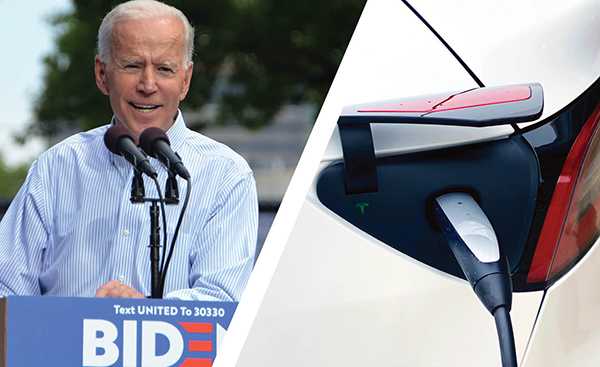Details of the Biden administration’s $174-billion proposal to boost EV adoption are slowly beginning to leak out. According to a Transportation Department email message seen by Reuters, the plan calls for $100 billion in new consumer rebates, $15 billion to build 500,000 new charging stations, $20 billion for electric school buses, $25 billion for zero-emission transit vehicles, and $14 billion in other tax incentives.
EV advocates have long been dissatisfied with the existing federal EV tax credits, which mainly benefit high-income taxpayers. A direct cash rebate would be a far better, and fairer, incentive, and the wording of this latest email seems to confirm that that’s what the administration is proposing. An earlier description of the plan, released by the Biden administration in late March, referred to “point of sale rebates” for “American-made EVs.”
Another eye-catcher is the amount of money involved. To put the figure of 100 big ones in perspective, consider that the original amount of funding allocated to the federal EV tax credit program was a mere $2.4 billion. It’s also rumored that the amount of the benefit may be increased to $10,000. Wedbush Auto Analyst Dan Ives recently told Yahoo Finance (via Electrek), “We are hearing from our contacts in the Beltway that [the] $7,500 tax credit could potentially be $10,000 in terms of a credit and that’s going to be a massive catalyst not just for Tesla, but for the EV ecosystem in the US.”
A new purchase incentive could be especially good news for GM and Tesla, both of which no longer qualify for the $7,500 tax credit, because they’ve each sold more than 200,000 EVs.
In a separate development, the White House just released its request for fiscal year 2022 discretionary funding, a preliminary step in the budget process, and this includes several EV-related items.
The discretionary request includes “$600 million for electric vehicles and charging infrastructure in the individual budgets of 18 Federal agencies, including dedicated funds at the General Services Administration for other agencies and for United States Postal Service charging infrastructure.”
It also calls for increased spending on research: “Within DOE, the discretionary request invests more than $8 billion, an increase of at least 27 percent over 2021 funding, in technology such as advanced nuclear energy technologies, electric vehicles, green hydrogen, and even innovative approaches to air conditioning and refrigeration.”
The document also lays out a funding request for electrifying the Federal Vehicle Fleet: “The discretionary request includes $300 million to purchase electric vehicles and charging infrastructure at GSA as well as $300 million for other Federal agencies to electrify the Federal motor vehicle fleet and reduce carbon emissions. This includes GSA’s leased fleet of over 200,000 cars, trucks, sport utility vehicles, and buses, the majority of which run on gasoline. The investment serves as a down payment to support a multiyear transformation of the Federal fleet.”
Sources: Reuters, CNET, White House



















































































